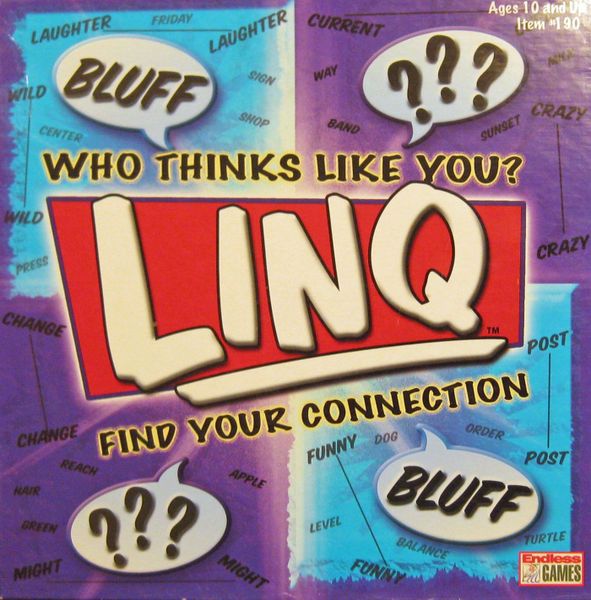Linq (2004) Board Game
Linq is a word game that was released in in 2004. Designed by Andrea Meyer and Erik Nielsen, this game falls under the categories of deduction, party game, spies/secret agents, and word game. With hidden roles, pattern recognition, targeted clues, team-based gameplay, and voting mechanics, Linq offers a unique and engaging experience for 4–8 players.
Game Components of Linq
How To Setup Linq
To set up Linq, a pair of Linq cards is secretly pulled from the box and mixed with bluff cards. The total number of cards is equal to the number of players, and each player receives one card. Players place their cards face down in front of them.
Gameplay Mechanics and Game Objective
Player Experience
Linq is a game that challenges players to use their brains to come up with words that their partner will guess, or to bluff convincingly. The game is not about hilarious laughter but about intellectual fun. Players need to be strategic in their clue-giving to avoid being too obscure or too obvious. Misinterpreting the rules can lead to imbalance, as seen when players abuse the system by giving irrelevant clues.
Pros
Cons
Personal Thoughts on Linq
Linq is ideal for players who enjoy puzzle-solving, strategic thinking, and social interaction. It is a great addition to game nights for those who prefer games that stimulate the mind rather than just providing light-hearted fun. However, it may not be the best choice for players seeking a highly competitive or fast-paced game, as it requires patience and careful consideration.
We are supported by our audience. When you purchase through links on our site, we may earn an affiliate commission, at no extra cost for you. Learn more.

